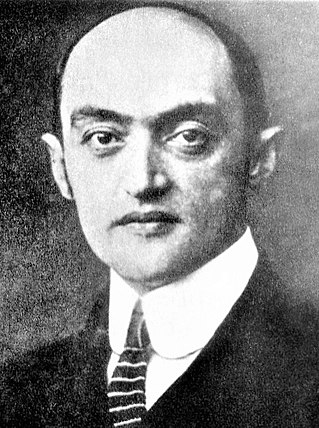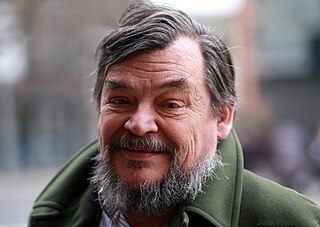Related Research Articles

Joseph Alois Schumpeter was an Austrian political economist. He served briefly as Finance Minister of Austria in 1919. In 1932, he emigrated to the United States to become a professor at Harvard University, where he remained until the end of his career, and in 1939 obtained American citizenship.
Creative destruction is a concept in economics that describes a process in which new innovations replace and make obsolete older innovations.

Development economics is a branch of economics that deals with economic aspects of the development process in low- and middle- income countries. Its focus is not only on methods of promoting economic development, economic growth and structural change but also on improving the potential for the mass of the population, for example, through health, education and workplace conditions, whether through public or private channels.

The historical school of economics was an approach to academic economics and to public administration that emerged in the 19th century in Germany, and held sway there until well into the 20th century. The professors involved compiled massive economic histories of Germany and Europe. Numerous Americans were their students. The school was opposed by theoretical economists. Prominent leaders included Gustav von Schmoller (1838–1917), and Max Weber (1864–1920) in Germany, and Joseph Schumpeter (1883–1950) in Austria and the United States.

One of the major subfields of urban economics, economies of agglomeration, explains, in broad terms, how urban agglomeration occurs in locations where cost savings can naturally arise. This term is most often discussed in terms of economic firm productivity. However, agglomeration effects also explain some social phenomena, such as large proportions of the population being clustered in cities and major urban centers. Similar to economies of scale, the costs and benefits of agglomerating increase the larger the agglomerated urban cluster becomes. Several prominent examples of where agglomeration has brought together firms of a specific industry are: Silicon Valley and Los Angeles being hubs of technology and entertainment, respectively, in California, United States; and London, United Kingdom, being a hub of finance.
Wolfgang Drechsler is a Public Administration and Management, Innovation Policy and Political Philosophy scholar. He is Professor of Governance, and one of the founders and directors of the Technology Governance program, at the Tallinn University of Technology, Tallinn, Estonia, where between 2010 and 2016 he also served as Vice Dean for International Relations at its Faculty of Social Sciences. Since 2019, he is also affiliated with University College London, where he is Honorary Professor at the Institute for Innovation and Public Purpose (IIPP) and Principal Investigator of the John Templeton Foundation "Islamic Public Value" project, and since 2023, with Universitas Indonesia as an adjunct professor in the Faculty of Administrative Sciences.

Erik Steenfeldt Reinert is a Norwegian economist, with development economics, economic history and history of economic policy as his specialties.

The Big Push Model is a concept in development economics or welfare economics that emphasizes the fact that a firm's decision whether to industrialize or not depends on the expectation of what other firms will do. It assumes economies of scale and oligopolistic market structure. It also explains when the industrialization would happen.

Jan A. Kregel is an American post-Keynesian economist.

Carlota Perez is a British-Venezuelan scholar specialized in technology and socio-economic development. She researches the concept of Techno-Economic Paradigm Shifts and the theory of great surges, a further development of Schumpeter's work on Kondratieff waves. In 2012 she was awarded the Silver Kondratieff Medal by the International N. D. Kondratieff Foundation and in 2021 she was awarded an Honorary Doctorate by Utrecht University.

The idea of convergence in economics is the hypothesis that poorer economies' per capita incomes will tend to grow at faster rates than richer economies. In the Solow-Swan model, economic growth is driven by the accumulation of physical capital until this optimum level of capital per worker, which is the "steady state" is reached, where output, consumption and capital are constant. The model predicts more rapid growth when the level of physical capital per capita is low, something often referred to as “catch up” growth. As a result, all economies should eventually converge in terms of per capita income. Developing countries have the potential to grow at a faster rate than developed countries because diminishing returns are not as strong as in capital-rich countries. Furthermore, poorer countries can replicate the production methods, technologies, and institutions of developed countries.

New trade theory (NTT) is a collection of economic models in international trade theory which focuses on the role of increasing returns to scale and network effects, which were originally developed in the late 1970s and early 1980s. The main motivation for the development of NTT was that, contrary to what traditional trade models would suggest, the majority of the world trade takes place between countries that are similar in terms of development, structure, and factor endowments.
The Solow–Swan model or exogenous growth model is an economic model of long-run economic growth. It attempts to explain long-run economic growth by looking at capital accumulation, labor or population growth, and increases in productivity largely driven by technological progress. At its core, it is an aggregate production function, often specified to be of Cobb–Douglas type, which enables the model "to make contact with microeconomics". The model was developed independently by Robert Solow and Trevor Swan in 1956, and superseded the Keynesian Harrod–Domar model.
Demonstration effects are effects on the behavior of individuals caused by observation of the actions of others and their consequences. The term is particularly used in political science and sociology to describe the fact that developments in one place will often act as a catalyst in another place.
Ragnar Wilhelm Nurkse was an Estonian-American economist and policy maker mainly in the fields of international finance and economic development. He is considered the pioneer of Balanced Growth Theory.

Rainer Kattel is an Estonian academic and science administrator. He is professor of Innovation and Public Governance at Institute for Innovation and Public Purpose, UCL, and Research Professor and Chair of Innovation Policy and Technology Governance at Tallinn University of Technology. In 2015-16, he was a visiting professor at Columbia University's Earth Institute.

Innovation economics is new, and growing field of economic theory and applied/experimental economics that emphasizes innovation and entrepreneurship. It comprises both the application of any type of innovations, especially technological, but not only, into economic use. In classical economics this is the application of customer new technology into economic use; but also it could refer to the field of innovation and experimental economics that refers the new economic science developments that may be considered innovative. In his 1942 book Capitalism, Socialism and Democracy, economist Joseph Schumpeter introduced the notion of an innovation economy. He argued that evolving institutions, entrepreneurs and technological changes were at the heart of economic growth. However, it is only in recent years that "innovation economy," grounded in Schumpeter's ideas, has become a mainstream concept".
Uneven and combined development, unequal and combined development, or uneven development is a concept in Marxian political economy intended to describe dynamics of human history involving the interaction of capitalist laws of motion and starting world market conditions whose national units are highly heterogeneous. The concept is used by Marxist scholars concerned with economic development. David Harvey is an advocate of the usefulness of this theory to reconstruct historical materialism on Modern terms. It is an accepted key concept in academic economic geography.

The balanced growth theory is an economic theory pioneered by the economist Ragnar Nurkse (1907–1959). The theory hypothesises that the government of any underdeveloped country needs to make large investments in a number of industries simultaneously. This will enlarge the market size, increase productivity, and provide an incentive for the private sector to invest.

Why Nations Fail: The Origins of Power, Prosperity, and Poverty, first published in 2012, is a book by economists Daron Acemoglu and James A. Robinson, who jointly received the 2024 Nobel Economics Prize for their contribution in comparative studies of prosperity between nations. The book applies insights from institutional economics, development economics, and economic history to understand why nations develop differently, with some succeeding in the accumulation of power and prosperity and others failing, according to a wide range of historical case studies.
References
- 1 2 "Other Canon | Documenting The Other Canon". www.othercanon.org. Archived from the original on 2006-08-16.
- ↑ "Other Canon | Who is The Other Canon?". www.othercanon.org. Archived from the original on 2006-08-16.
- ↑ Canon 11 99.doc The Other Canon - Reconstructing the Theory of Uneven Economic Development
- ↑ "Other Canon | Documenting The Other Canon". www.othercanon.org. Archived from the original on 2006-08-16.
- ↑ Erik Reinert. The Role of the State in Economic Growth
- ↑ Erik Reinert. How Rich Countries Got Rich ... and Why Poor Countries Stay Poor (2007), London: Constable.
- ↑ Reinert, Erik S. Diminishing Returns and Economic Sustainability; The Dilemma of Resource-based Economies under a Free Trade Regime.
- ↑ "Home". anthempress.com.
- ↑ "Home". iss-evec.de.